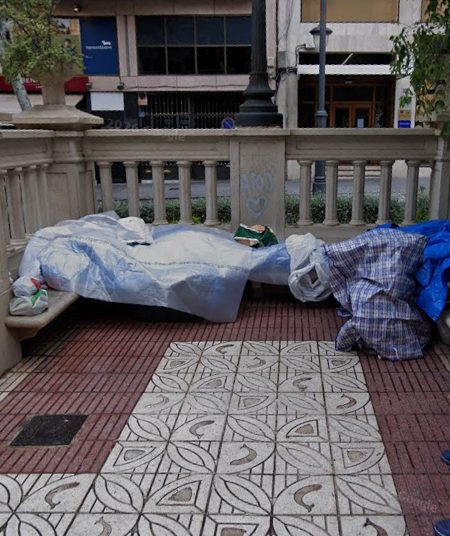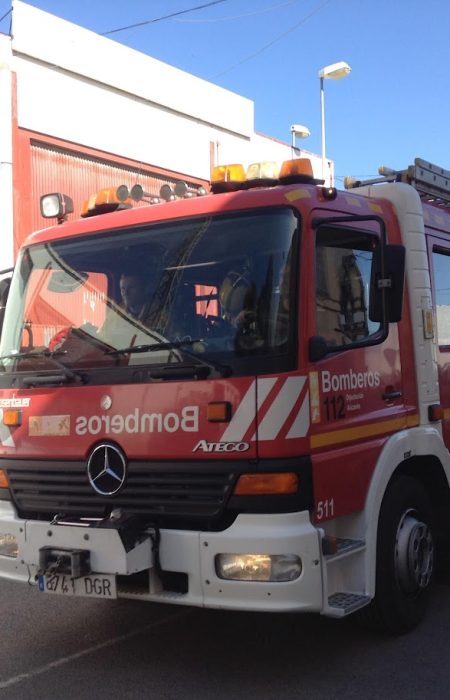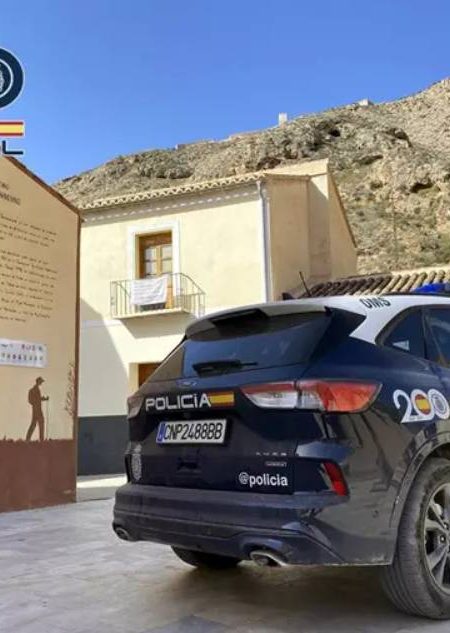In Málaga, the Spanish National Police have caught Wilmer Geovanny Chavarría Barre, also known as “Pipo,” who is Ecuador’s most wanted drug dealer. He was arrested when he got to the Costa del Sol airport from Morocco. He was using a fake name, Danilo Ramón Fernández Calderón, in a combined operation with Ecuadorian security agents. Police say he is in charge of the powerful criminal group Los Lobos and is connected to many bombs in Guayaquil “to intimidate the President of Ecuador and stop prison reforms.” “We have caught the most important target.” The mafias are leaving today. Daniel Noboa, the president of Ecuador, wrote on social media, “Today Ecuador wins.”
Chavarría was arrested for forging documents as part of an operation dubbed Rebirth. He had even faked his own death in 2021 to avoid going to jail. According to the Ecuadorian government, he got a new Venezuelan identity and then a Colombian passport to move to Spain and set up his base of operations in Europe. He also spent time in the United Arab Emirates. The National Police said they are waiting for a red notice, which is a request from Interpol for the police to proceed with the extradition of the detainee “for his involvement in events that occurred in Ecuador.” The criminal was the head of Los Lobos, the biggest and most powerful criminal organisation in Ecuador. He had just made a brief partnership with another group named Chone Killers. Police sources stressed that “the organisation has the ability to commit terrorist acts, influence other countries, and avoid international justice.”
Ecuador’s Interior Minister, John Reimberg, who is in Spain this Sunday, said that Chavarría “led a vast drug trafficking and criminal network in the Netherlands, Italy, Germany, Mexico, and Colombia, with direct connections to the Ecuadorian New Generation Cartel (CNGE) and alliances with Mexican, Colombian, and European cartels.” He was one of the Ecuadorian officers that helped the Central Drug and Organised Crime Unit (UDYCO) plan the big operation to get Chavarría. The minister said that what the police did was “a historic blow to the security” of his country. Reimberg wrote on X (previously Twitter) that “Chavarría Barre is responsible for at least 400 deaths and for years ran criminal operations from the Litoral Penitentiary and the Turi prison, where he was incarcerated between 2011 and 2019.”
Chavarría is the most sought criminal in his country after cocaine trafficker José Adolfo Macías Villamar (Fito) was caught in May. He is connected to many recent attacks in Guayaquil that used vehicle bombs and drones shot from jails. At least four strikes were planned from the La Roca maximum-security prison between September 2024 and October 2025. The National Police say that the attacks were paid for by Spain “to scare the president of Ecuador and stop prison reforms.” “He changed his name and went into hiding in Europe while directing drug routes with the Jalisco New Generation Cartel, ordering murders in Ecuador, and controlling illegal mining operations. We looked for him in his own personal hell because some people assumed he was dead. President Noboa said on social media on Sunday, “That’s the difference when you want to fight for your country.”
The president made the announcement at the same time that Ecuador’s electoral day began. He called for a referendum to decide, among other things, whether to set up a Constituent Assembly to fight organised crime with a “tougher hand” and to make it easier for businesses to invest and create jobs. Noboa said that the capture of Pipo Chavarría was possible “thanks to international cooperation with Spain and the United States” after he voted in the coastal town of Olón in the province of Santa Elena, where he had a beach house. “We did a really good job of coordinating and carrying out the operation. The president said, “The best way to fight these groups is through international cooperation.” He also suggested that this referendum could allow foreign military sites to be built.
Los Lobos had become Ecuador’s most powerful crime group and was a major player in the war between criminal factions that has been going on in the country since late 2020. The gang wanted to leave Los Choneros and was the most successful at doing so, eventually taking their place. Authorities say they did this by teaming up with the Jalisco New Generation Cartel (CJNG) to send cocaine to Mexico, mostly from Colombia. This is different from their competitors, who are working with the Sinaloa Cartel. Los Lobos got bigger and did more things like getting involved in illicit mining and, according to the authorities, making deals with dissident groups from the Revolutionary Armed Forces of Colombia (FARC) to take advantage of illegal mining locations in the Amazon’s border zones.









No Comment! Be the first one.